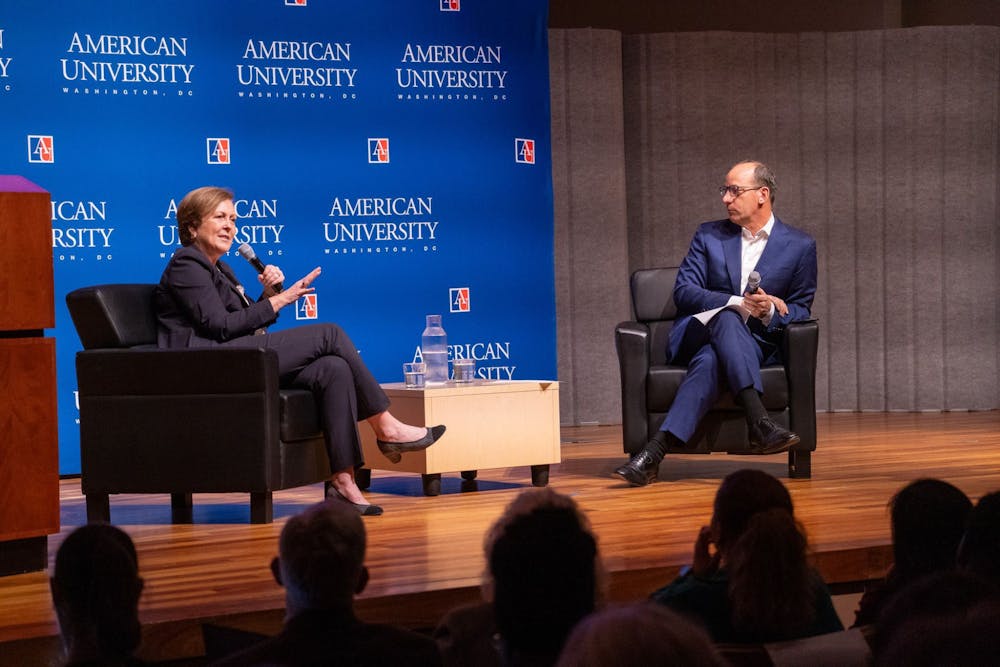Former President of The John F. Kennedy Center for the Performing Arts Deborah Rutter offered frank career advice and an account of her tenure in a conversation, dubbed a “fireside chat,” with American University Kogod School of Business Dean David Marchick in the Abramson Family Recital Hall on March 25.
Hosted by the Kogod School of Business and the Department of Performing Arts as part of the Alan Meltzer Ceo Speaker Series, an assortment of undergraduate and graduate student attendees attended the event, many of whom were seeking career opportunities in the arts and arts management.
After a brief introduction from American University President Jonathan Alger detailing his personal affinity and past involvement in the performing arts, Marchick began the conversation with an account of Rutter’s expansive career in arts administration.
Before planning to step down and eventually being terminated from her position by President Donald Trump in February, Rutter’s over 10-year tenure at the Kennedy Center was marked by her investment in the center’s REACH extension program, which facilitates interactive events featuring national arts companies and organizations for the D.C. community.
Rutter’s time as president also focused on the inclusion of hip-hop and comedy in the Center’s performance repertoire.
Rutter said that she could not have accomplished these goals without her experience working with the Los Angeles Philharmonic Orchestra at the Hollywood Bowl and her education from the University of Southern California’s Marshall School of Business.
The connections and knowledge she gained from both her time at the University of Southern California and Stanford University as an undergraduate violin performance major led her to a “magic moment” or revelation that inspired her to pursue a career path in arts management.
Following her directorial positions at the Los Angeles Philharmonic Orchestra, the Seattle Symphony and the Chicago Symphony Orchestra, Rutter became what Marchick called “the most important person” in arts administration in the United States. She noted the uniqueness of her most former position, mentioning the Kennedy Center’s national presence as both a cultural hub and living memorial for former President John F. Kennedy.
Rutter said that her position was an opportunity to “offer her perspective” to an institution that had been established years before her, and will continue to operate years after her.
Students asked Rutter questions concerning the security and continuity of arts education and inclusion of diverse voices in the Kennedy Center’s programmatic offerings and generally within American arts amidst recent directives that led to her termination.
Rutter’s two-pronged response to a question about one continuing to support the Kennedy Center under the control of an administration whose ideology they might disagree with particularly resonated with audience members.
“Artists should think for themselves about where they perform and what decisions they make,” Rutter said. “[The audience should then] follow the artist. You are essentially going to [a performance at the Kennedy Center or another institution] because you care about the art.”
Rutter’s advice doubled as a message of hope, and expressed encouragement for young artists, and students, to continue working to represent and reflect on society.
“Artists are the individuals holding the mirror up to society to tell us who we are,” Rutter said. “[They] need to find the place where they are supported to continue doing that.”
This article was edited by Alia Messina, Marina Zaczkiewicz and Abigail Turner. Copy editing done by Luna Jinks, Olivia Citarella, Charlie Mennuti and Ella Rousseau.





